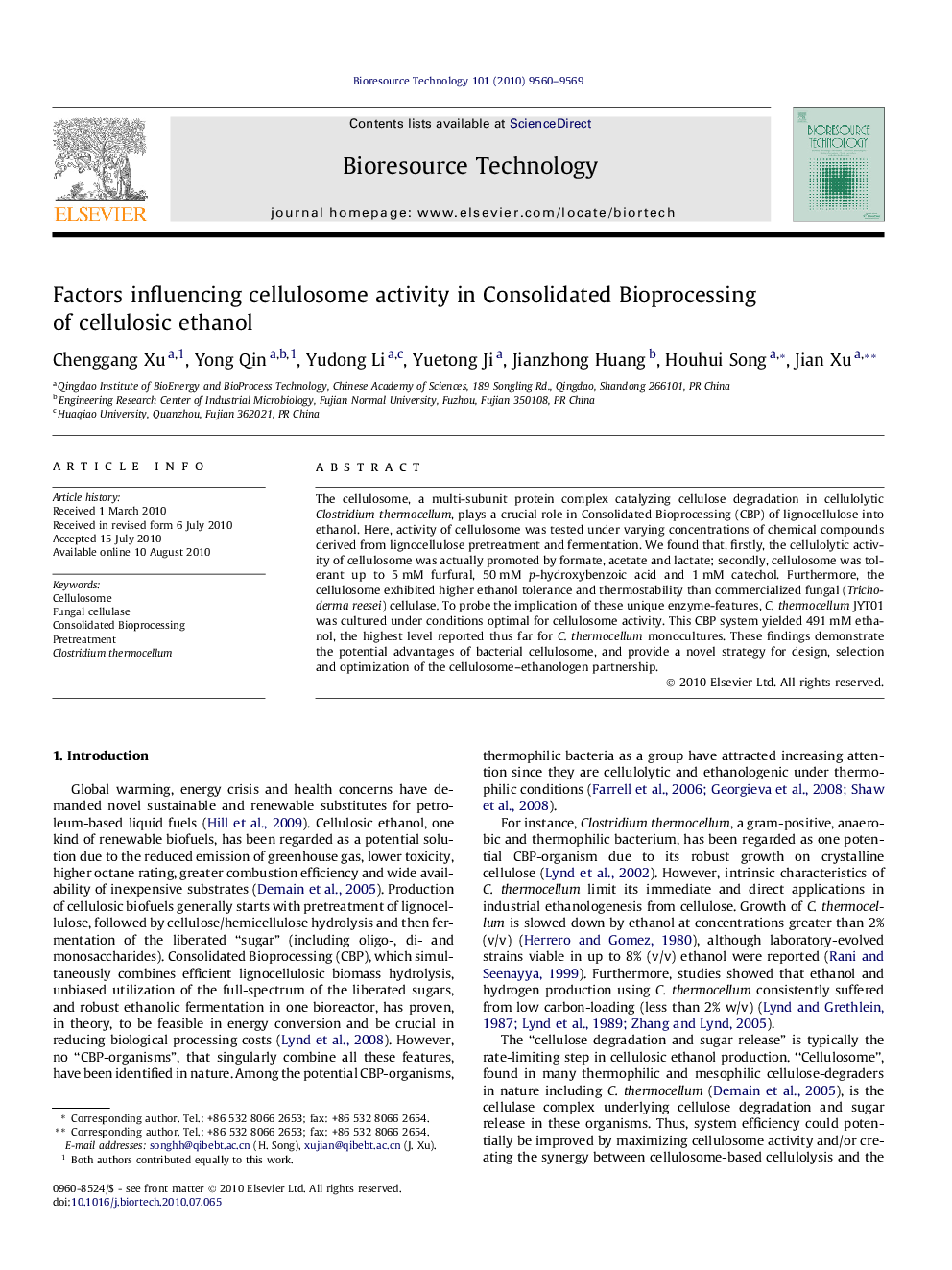| Article ID | Journal | Published Year | Pages | File Type |
|---|---|---|---|---|
| 682429 | Bioresource Technology | 2010 | 10 Pages |
The cellulosome, a multi-subunit protein complex catalyzing cellulose degradation in cellulolytic Clostridium thermocellum, plays a crucial role in Consolidated Bioprocessing (CBP) of lignocellulose into ethanol. Here, activity of cellulosome was tested under varying concentrations of chemical compounds derived from lignocellulose pretreatment and fermentation. We found that, firstly, the cellulolytic activity of cellulosome was actually promoted by formate, acetate and lactate; secondly, cellulosome was tolerant up to 5 mM furfural, 50 mM p-hydroxybenzoic acid and 1 mM catechol. Furthermore, the cellulosome exhibited higher ethanol tolerance and thermostability than commercialized fungal (Trichoderma reesei) cellulase. To probe the implication of these unique enzyme-features, C. thermocellum JYT01 was cultured under conditions optimal for cellulosome activity. This CBP system yielded 491 mM ethanol, the highest level reported thus far for C. thermocellum monocultures. These findings demonstrate the potential advantages of bacterial cellulosome, and provide a novel strategy for design, selection and optimization of the cellulosome–ethanologen partnership.
